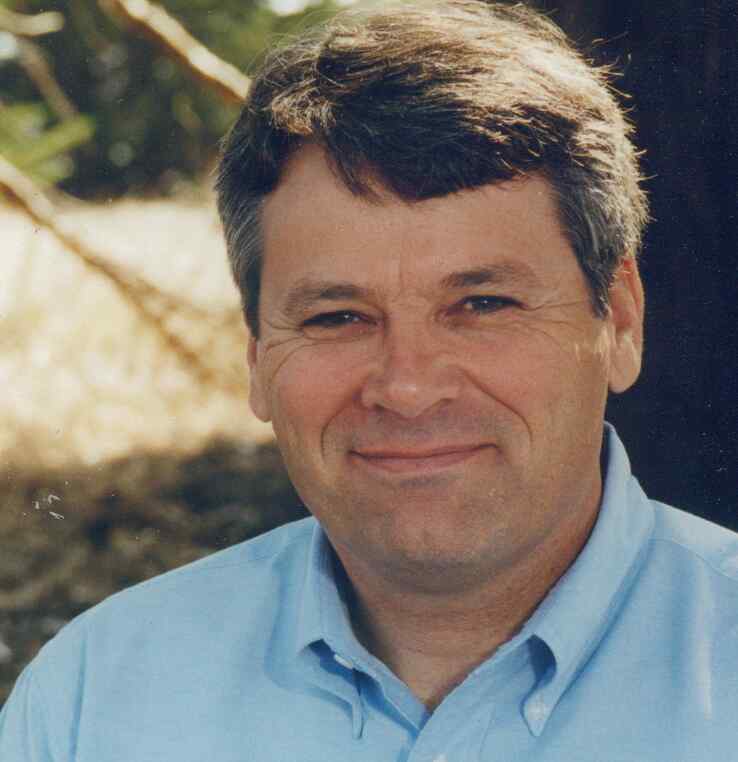By Bill Bryant
 In the previous issue of American Randonneur we looked at some techniques and strategies for having a successful (and hopefully enjoyable) 200-kilometer brevet. This time we'll go to the other end of the spectrum and discuss the 600-kilometer event. As RUSA president Jennifer Wise has said, "The 600k is definitely the litmus test of a randonneur. It has all the elements you need to conquer: distance, elevation, darkness, and personal pacing."
In the previous issue of American Randonneur we looked at some techniques and strategies for having a successful (and hopefully enjoyable) 200-kilometer brevet. This time we'll go to the other end of the spectrum and discuss the 600-kilometer event. As RUSA president Jennifer Wise has said, "The 600k is definitely the litmus test of a randonneur. It has all the elements you need to conquer: distance, elevation, darkness, and personal pacing."
As in so many things about our allure libre style of randonneuring, one is free to choose their own pace so long as it keeps the rider inside the opening and closing times of the control points along the way. And so it is with the 600k; you should try to ride fast enough to get the job done efficiently, but not so fast that you burn out prematurely. And like the aforementioned 200k brevet, all the paperwork procedures of signing into control points are the same on the 600k. Another thing is the same as the 200k: the average riding pace. All the brevets from 200 kilometers through 600 kilometers have a minimum average pace of about 15 kph. So, even though you will become more fatigued during the longer brevets and will probably need additional rest time, that cruel clock keeps ticking away. Wasting time on the 600k event is to be avoided at all costs. Don't get lost, steer clear of unnecessary roadside repairs by starting on a thoroughly reliable machine, and don't spend too much time off the bike in search of rest, food or fluids. If you squander time early on, the results later in the event could be quite unpleasant. Also, the long distance might aggravate old injuries, so be sure your bike fits well in all regards and is comfortable to ride for a long time--raising your handlebars an inch or so could be a very good modification.
When you decide which 600k event your want to enter, try to get as much information beforehand as possible. Mark the course on a regional map and familiarize yourself with the control points and major turns along the route. Ask the organizer about the amount of climbing and try to see where it is located. It could be that your region has many short rolling climbs, or long mountain ascents might be the norm, and it may well have both! It might even be fairly flat. Will there be strong prevailing winds? Whatever the conditions, is your bike geared appropriately to maximize your energies? Do you have a "bail-out" low gear in case you bonk or become overly fatigued? Perhaps the organizer didn't accurately measure the climbing and there is much more than anticipated, or steeper than previously thought. Also, see what the typical weather is at that time of year and select your clothes accordingly (but always carry something extra in case it gets colder than expected.) Is your bike in tip-top shape? Is there anything in your under-the-saddle tool kit that needs replacement from a previous repair? Six hundred kilometers is a long distance, should you put some fresh rubber on your wheels?
With your maps, bike, and other equipment ready to go, use the average paces you've ridden on previous brevets and centuries over similar terrain as the 600 and try to work out a realistic riding schedule based on the expected amount of climbing. Keep in mind that most pre-ride schedules are only a rough rule of thumb at best, but going into battle without a plan is often a recipe for disaster. Being conservative is often the best way to go, particularly if this will be your first 600k brevet. So, even if you've successfully ridden the previous brevets "winging it", try to formulate some sort of plan for the 600k--its long distance in only 40 hours of total time won't tolerate many mistakes. Most randonneurs find they slow down the longer the events become, and that is not counting a sleep stop. With your estimated pace, the route sheet, maps, and event starting time, predict when and where you'll be in the dark. Will it be a couple of hours using your lights before a planned sleep stop? More likely you might experience four to six hours of cycling in darkness. Or will you pull an all-nighter and ride into the next dawn? Your plan of attack will help you decide how much to carry on your bike, especially in terms of clothes for the chilly pre-dawn hours, extra food for when the stores are closed, and also for the extra batteries your lights will need. (An entire issue of American Randonneur could be devoted to the pros and cons of various styles of randonneur lighting systems, but for now, this limited space will only touch on this important topic.)
At this point you are almost ready to roll up to the starting line, but first, an important digression: Exactly why are you riding this 600k? There are two main reasons and each will flavor your overall plan of attack. First, the 600k may be the culmination of your season's efforts to earn the prestigious Super Randonneur medal, which is awarded to riders who successfully do a series of 200, 300, 400, and 600-kilometer brevets in one year. If so, then this 600k can be ridden using the full 40-hour time allotment. Get as much sleep as you can afford and ride at an enjoyable pace that gets the job done in 39 hours or less. (One should always try to keep at least an extra hour in hand for some unforeseen situation like punctures and/or getting lost.) Splitting the ride into, say, a 400-kilometer ride from dawn till midnight or 2 AM, and then a 200-kilometer ride the next day, is often used by many experienced randonneurs in this type of situation. (Doing a 300/300 split makes most folks a little too nervous about how much has to be done the second day when you're more tired, but the elevation changes or sleeping location along the route may dictate this approach.)
On the other hand, perhaps this 600k will be used to qualify you for some greater adventure, such as a 1200-kilometer BMB, PBP, or GRR. Then you should, at least in the author's opinion, choose a different approach that eliminates your sleep time. Experienced anciens and anciennes know that a 600-kilometer brevet will not really prepare your mind and body for the profound fatigue that is part and parcel of doing twice that distance in 90 hours or less. I would strongly suggest that if you aspire to do a 1200k, then endeavor to do a sleepless 600k precisely because it is so much harder than doing it with some rest. Afterward, that will give you better confidence to tackle the "big one". The reputable and renowned Lon Haldeman agrees. He has told others that doing a preparation ride of at least 24 hours' duration is a key ingredient to success in such lofty athletic goals. Have other randonneurs done their 1200k events successfully after having taken a sleep break on their 600k? Absolutely, and there have been many. But if asked to share one piece of advice to help the new randonneur doing their first 1200k, I'd say that doing the 600k without sleep is one of, if not the most important "character-building" experiences they could do to ensure success. (But be very careful on the drive home after the event--your sleepless night may well catch up with you then! Better to sleep a little before you drive.) Riding throughout an entire night is quite an accomplishment that each randonneur and randonneuse with a 1200k event on their schedule should feel confident in attempting. And if your training and recovery program permits, doing two sleepless 600s before the 1200k is better still (but your region's brevet calendar may not allow this approach.)
Okay, you've decided on how to approach your first 600. Away you go! As you work your way through the day (assuming there was the normal dawn start used by most events), ride conservatively and keep your pace a little slower than normal; your store of energy has to last a long time yet. Pick a pace that covers the ground efficiently without exhausting yourself. Eat and drink sensibly. Don't stuff yourself, but neither should you bonk or become dehydrated at any time. Keep the sunscreen handy on hot days since sunburn can really sap your strength long after the sun has gone down. Find some other entrants to chat with to while away the long hours in the saddle. Loneliness can be a real morale-killer on a 600k (more so than on the shorter brevets); slow down and find some company if needed. Finishing is everything in this game--don't become a DNF from cycling too long alone. Also, having a companion or two can be of help if you have a repair to do, or to keep from becoming lost. It is also best to be in a group after sundown. When cycling at night, cars' headlights will spot a small group much better than a solo rider. Make sure you have lots of reflective stuff stuck to your bike and on your helmet and clothing. White jerseys show up well also. Always be safe!
As you go into the night, try hard to reach your planned sleeping place; don't stop prematurely unless you're dangerously sleepy. And try to enjoy your ride! On a quiet country road nocturnal cycling can be a wonderful experience, especially if there is a full moon up. It is exactly these sorts of sublime moments that keep so many randonneurs and randonneuses coming back for more year after year. If, however, all this is feeling too much like a chore, try eating more since you're probably bonking. Or, put on another layer of clothes if you're becoming too cold. Perhaps you're in need of some company too. At any rate, if you stop for some sleep, three to five hours will be enough. Much more and you may find your muscles have really stiffened up when you resume the ride. If so, cycle gently until you've thoroughly loosened up.
If you're doing the 600k without sleep, don't focus too much on when dawn will arrive. Just take the night ride in short sections, say, from one control point to the next. Sometimes the "big picture" can be too daunting, especially if you ponder this enormous challenge at length. Instead, fix your mind on achieving small, more easily attained goals. Ride side-by-side and shoot the breeze with another entrant to while away the time. This will illuminate the road better than riding alone and is generally safer than drafting nose-to-tail in the dark. Extra caution is also needed going downhill at night. As randonneuring guru John Hughes has said, "Never descend at night faster than your Guardian Angel can see!" At any rate, when doing an all-nighter, attitude is everything. Keep your spirits up and you'll do fine.
Lastly, take the foregoing with a pinch of salt. All of us come to randonneuring with different abilities and ambitions. Modify the advice given to best suit your personal situation and riding style and abilities, and be sure to use your prior randonneuring experiences as your guide when you attempt your first 600k. Ride safely, don't get lost, have fun, enjoy your companions and the scenery, thank the checkpoint volunteers, and above all, finish the brevet and get your medal!
